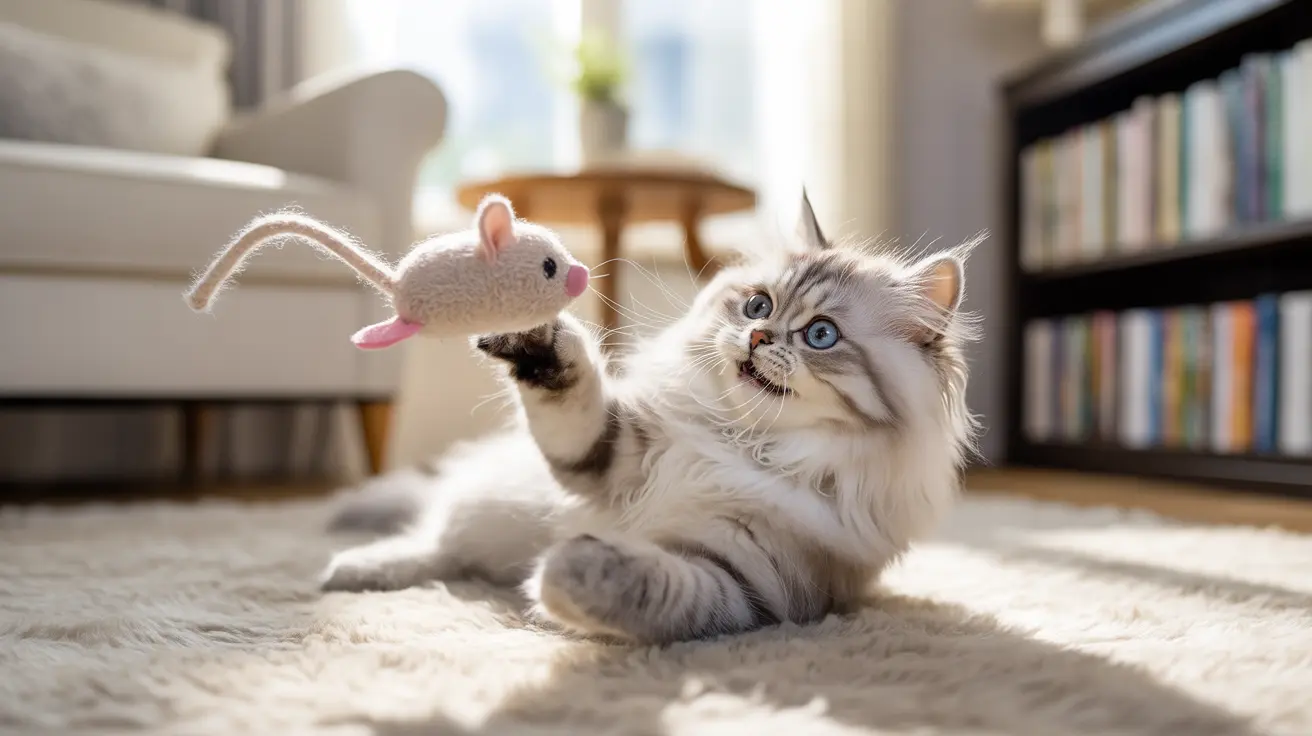Catnip has long been a source of fascination for cat owners, with its mysterious ability to trigger wild and sometimes hilarious reactions in our feline friends. But beyond the entertaining rolling and playful behavior, many pet parents wonder about the safety and effects of this unique herb. In this comprehensive guide, we'll explore everything you need to know about catnip and whether it's safe for your cat to consume.
What Exactly Is Catnip?
Catnip (Nepeta cataria) is a fascinating herb belonging to the mint family that contains a special compound called nepetalactone. This essential oil is responsible for the remarkable effect it has on cats. Interestingly, not all cats are susceptible to catnip's charms – approximately 50-70% of cats respond to the herb, while 30-50% remain completely unaffected due to genetic factors.
The Science Behind Catnip's Effects
When a cat encounters catnip, the nepetalactone binds to receptors in their nasal passages, stimulating sensory neurons that lead directly to the brain. This unique interaction can trigger a range of behavioral responses, from hyperactive playfulness to complete relaxation. Notably, a cat's sensitivity to catnip typically doesn't develop until they're between 3-6 months old, and the trait is hereditary.
How Catnip Affects Cats: Stimulant or Sedative?
One of the most intriguing aspects of catnip is its dual nature. When inhaled, catnip acts as a stimulant, sending cats into a state of euphoric excitement. Conversely, when ingested, it tends to have a more sedative effect. The typical catnip experience lasts about 10-15 minutes, after which cats become temporarily immune to its effects for approximately two hours.
Typical Catnip Reactions
Cat owners might observe a variety of behaviors when their feline friends encounter catnip, including:
- Rolling and flipping
- Rubbing and head-butting
- Meowing or growling
- Increased playfulness
- Drooling
- Purring
- Moments of calm or hyperactivity
Is It Safe for Cats to Eat Catnip?
Good news for cat lovers – cats cannot overdose on catnip in a life-threatening way. However, moderation is key. Veterinarians recommend limiting catnip consumption to about one tablespoon at a time. While safe in small quantities, excessive consumption can lead to minor health issues such as:
- Mild vomiting
- Diarrhea
- Temporary dizziness
- Slight coordination problems
Tips for Catnip Usage
To maximize the herb's effectiveness and ensure your cat's safety, consider these professional tips:
- Use fresh catnip sparingly (it's more potent than dried forms)
- Avoid highly concentrated catnip oils
- Store catnip in an airtight container in the freezer to maintain freshness
- Introduce catnip in small amounts to monitor your cat's reaction
Frequently Asked Questions
Can cats safely eat catnip, and what are the potential health benefits?
Cats can safely consume small amounts of catnip. In moderation, it may provide mild digestive tract benefits and serve as an occasional enrichment treat.
How much catnip is too much for my cat, and what happens if they consume too much?
Stick to about one tablespoon at a time. Excessive consumption can cause mild digestive upset, but it's not typically dangerous.
Why don't all cats react to catnip, and is sensitivity to catnip inherited?
Catnip sensitivity is a genetic trait. Approximately 50-70% of cats have a reaction, with the sensitivity being hereditary and developing between 3-6 months of age.
How often can I give catnip to my cat without reducing its effectiveness?
Allow at least two hours between catnip sessions. Frequent exposure can reduce its impact, so use it sparingly for the best experience.
Can catnip be used to calm my cat during stressful situations like car trips or vet visits?
While catnip can have a calming effect for some cats, its impact varies. It's best to consult with your veterinarian about stress management techniques specific to your cat's needs.






